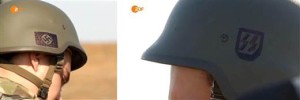The Resumption of All Out War in Eastern Ukraine

The truce in Ukraine is at risk.
Last night Donetsk was subjected to hours-long artillery bombardment, the most intense in weeks.
Looking at the Ukrainian side, there are other signals their forces may launch a full-scale offensive.
The recent elections in Ukraine have created a very difficult political situation.
Political representation in the Rada is everything that foreign actors have been dreaming of since the onset of destabilization of Ukraine in Febuary.
The goal of filling the parliament with politicians who harbor radical ideas, and above all a strong anti-Russian sentiment has been achieved.
Essentially, these political groups are, directly or indirectly, related to the most extreme factions of nationalist Ukrainians such as the National Guard.
The information that has filtered out in recent months has made it possible to certify that these private battalions are financed by oligarchs close to foreign actors, especially in the US.
For these reasons, the fragile cease fire is holding less and less with each passing day. There have even been reports of Ukraine military vehicles operating in areas under rebel control.
In recent weeks it could be observed the Ukrainian forces in theater have increased their firepower, the number of vehicles at their disposal and strengthened the positions they occupy.
In the current situation the main drivers toward renewed fighting are:
- Political motivation
- A diversion from the catastrophic economic situation
- Foreign pressure toward the resumption of active conflict
Kiev’s strategy is unclear and it is difficult to predict future developments for the next few weeks. What is clear is that the most violent factions continue to push for a resumption of the conflict. More likely than not, the current situation will not hold for much longer.The so called winter-factor seems to be less relevant than originally thought. We will see if that is indeed the case, or if the period of “frozen conflict” will be a prelude to full-scale fighting in spring.

